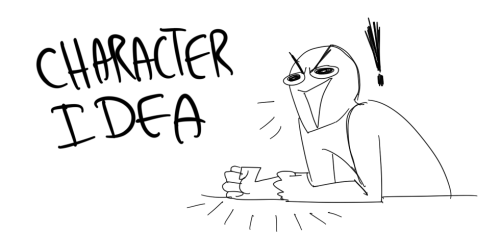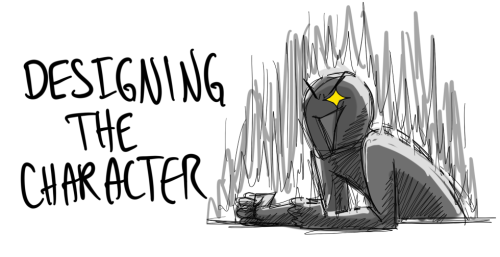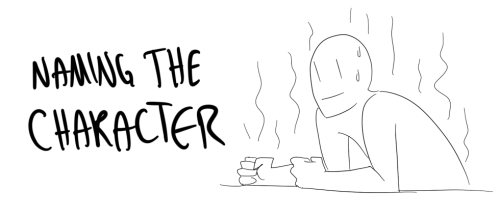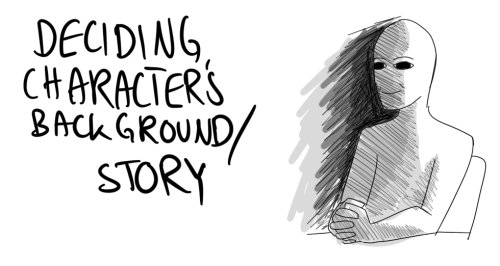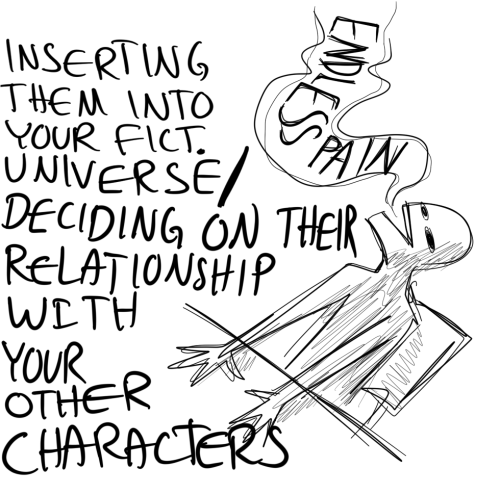Vampires & Vampire Fact Database
Vampires & Vampire Fact Database
While I have I’ve written fiction about werewolves and studied werewolf folklore and pop culture for my entire life both passionately and professionally, they are not the only monsters I study. I also study all other kinds of mythology and folklore, and vampires take perhaps second place only to werewolves. All my sources are thoroughly checked by myself and others, and I take very seriously sharing only accurate information about any and all folklore and myth, as well as from popular culture.
I also do vampire facts! Currently, werewolf/vampire/other folklore facts are on hold from their regular schedule while I compile and publish a fully coherent, fully sourced book entitled Werewolf Facts: A Guidebook to Folklore vs Pop Culture! Give me a follow to stay up to date with all the latest news. There may also be a book on vampire facts in the future!
Still, every now and then, I post a new bit of info about the folklore of vampires. You’ll find those under both the Folklore tag and the Vampire Fact tag. You can also check my Vampires tag for other vampire-related things, including asks and reblogs.
The following is a convenient database of all the vampire facts I’ve written, for easy reference.
Vampire Fact Database
Etymology - The history and meaning behind the word “vampire.”
What IS a vampire? - What exactly is a vampire, anyway, and how do you define one? How does folklore define one? Are there different kinds?
Fangs - Did vampires have fangs in folklore? Where did the fang thing even come from? The answer might surprise you.
Animal Associations - Are vampires really associated with things like bats or wolves - or anything else?
Sunlight - Did vampires in folklore actually burn up in the sunlight?
Weaknesses - Vampire weaknesses in folklore and how that stacks up to the most commonly seen ones in pop culture.
Becoming a Vampire - A comparison of how people “became” vampires in pop culture versus how that happens in folklore - all the most common ones, at least.
Intelligence - How smart are vampires in folklore, anyway?
Can vampirism be cured? - Is it possible in folklore to actually cure someone of being a vampire?
Vampire Hunters - Was there such a thing as “vampire hunters” in folklore?
Physical Appearance - What did vampires look like in folklore?
How to Identify a Vampire - How could you tell if someone was a vampire, anyway?
The Importance of Dracula - How important was Dracula to all vampire concepts?
Association with Disease - Were vampires in folklore actually associated with disease?
Please note I will continually be updating this list as more vampire facts are posted, so be sure to come visit my page again for any new additions!
Other helpful vampire info, tips, and more:
(coming soon!)
I also write fiction, and much of it includes or focuses on various kind of folklore and mythology and monsters, especially my medieval fantasy universe, Wulfgard. For more info, take a look at my Writing List!
I also have a Patreon, where I would love your support (and you get goodies for it!). I also have a Twitter.
More Posts from Watergeus and Others
writing quiet characters
He looked at him. He looked at him in a different way. Blinked. He tilted his head. He looked at him sideways. Under his lashes. In a unique kind of tilt. In a violent sort of way. He stared at him in a kind of way you haven’t read about before. He sighed. He looked away. He looked at a different away. He stared. Considered. Pondered. He was silent but it was interesting, somehow. It was a questioning sort of silence. Puzzled. He was still. He went even more still. He was barely breathing. He was dead with anticipation. He tensed. He relaxed minutely. The seconds ticked by, silently. He waited. He narrowed his eyes. His eyes widened. He followed you with them. His eyes. He did something that was nothing but filled the required beat of a line. He
Character Traits & Quirks (For Writers)
Peace and blessings upon everyone!
I hope life's treating you well. I’m Esmeray and I welcome you to this post on my blog Dear Esmeray.
Ever wondered what makes your OC truly unforgettable? I believe it is the character traits. Character traits are what bring a character to life, or else you just have a flat, one-dimensional everyman as your OC. So today I'll be sharing with you a list of character traits that I compiled to help you develop better OCs.
Positive Traits:
Agreeable
Brave
Caring
Cheerful
Confident
Cooperative
Creative
Dedicated
Devotion
Diligent
Disciplined
Dutiful
Easygoing
Efficient
Fairness
Forgiveness
Friendly
Funny
Generous
Hard-Working
Honest
Honorable
Humble
Kind
Leadership
Love of learning
Loyal
Passionate
Persuasive
Prudent
Principled
Punctual
Reasonable
Reliable
Respectful
Responsible
Self-regulation
Social Intelligence
Supportive
Trust-worthy
Well-mannered
Witty
Wise
Neutral Traits & Quirks:
Raises Eyebrows
Blinks rapidly
Avoids eye contact
Maintains eye contact
Blinks rapidly
Slouches
Stares off into the distance
Shrugs often
Touches their scars or wounds often
Chews lips
Paces around
Smiles a lot
Rarely smiles
Gestures with hands while speaking
Often is distracted
Hums
Negative Traits:
Absentminded
Abusive
Acts superior
Alcoholic
Aggressive
Always plays the victim
Aimless
Apathetic
Arrogant
Argumentive
Avoids their problems
Bossy
Blunt
Boring
Careless
Can't take criticism
Can't take a joke
Clumsy
Conceited
Controlling
Cunning
Childish
Cruel
Deceptive
Defiant
Demanding
Disloyal
Dishonest
Dramatic
Dependent
Disorganized
Disrespectful
Distracted easy
Extravagant
Envious
Forgetful
Greedy
Holds grudges
Makes up excuses for everything
Has a reason for why nothing is ever their fault
No accountability
Hostile
Hypopocrite
Immature
Impatient
Impractical
Impressionable
Impulsive
Insensitive
Irresponsible
Not a team player
Incompetent
Irritable
Inconsiderate
Indulgent
Insecure
Jealous
Know-It-All
Lazy
Liar
Loud
Manipulative
Makes everything about them
Makes everything a joke
Their way or the highway
Mean
Meddlesome
Messy
Naive
Nosy
Obnoxious
Obbssesive
Offended easily
Overdramatic
Overreacts
Patronizing
Power-hungry
Pretentious
Rebellious
Reckless
Rude
Sarcastic
Selfish
Sensitive
Stingy
Sexist
Spoiled
Stubborn
Superstitious
Talks over others/interrupts
Too loyal
Too forgiving
Undependable
Unreliable
Unsympathetic
Unorganized
Unreasonable
Violent
Weak
Remember, there are no one-dimensional characters in real life, and there shouldn't be in your stories either. The possibilities for your characters are endless – so get creative and have fun writing!
With Love, Esmeray ♡
30 Questions for your Dark Urge
These questions can be used as an Ask Game or just answering them all for fun character development!
(Tav edition here)
What circumstances led to your Dark Urge becoming their Class/Subclass?
Did your Dark Urge have any romantic and/or sexual relationships prior to their illithid adventure? If yes, who was it with and what was it like? If no, how did they feel about being single?
What would your Dark Urge consider to be their greatest skill? Is this accurate?
What would your Dark Urge consider to be their greatest flaw? Is this accurate?
What opinion does your Dark Urge have about the Gods?
How does your Dark Urge react to waking up with memory loss?
Did your Dark Urge recall any childhood memories? If yes, how do they feel about the revelations? If no, was it by choice or lack of options?
How does your Dark Urge feel about the wilderness?
How does your Dark Urge feel about the city?
What motivates your Dark Urge to either embrace or resist the tadpole?
What motivates your Dark Urge to either embrace or resist the Urge?
How does your Dark Urge feel about being a bhaalspawn?
How does your Dark Urge feel about killing?
How good of a liar is your Dark Urge? How do they feel about lying?
What is your Dark Urge’s greatest fear?
What is your Dark Urge’s greatest desire?
What is your Dark Urge’s greatest regret?
How does your Dark Urge feel about love?
Has your Dark Urge become particularly close to anyone romantically and/or platonically in their journey? If so, who, and what is the relationship like? If no, why not?
Is your Dark Urge open about their Urge or do they try to hide it? Why?
What are 2-3 songs that your Dark Urge would relate to?
What first impression does your Dark Urge give off to strangers?
How does your Dark Urge feel about what others think of them?
Does your Dark Urge have a treasured item with them? If yes, what is it and why is it special? If no, how do they feel about item sentimentality in general?
How does your Dark Urge feel about Sceleritas Fel?
How does your Dark Urge feel about Bhaal?
How does your Dark Urge feel about giving and receiving orders?
How well does your Dark Urge function under pressure?
What advice would you give to your Dark Urge?
What are your Dark Urge’s intentions/goals after the end of the game?
Oh my gosh. I just found this website that walks you though creating a believable society. It breaks each facet down into individual questions and makes it so simple! It seems really helpful for worldbuilding!
some original character (OC) questions that might pique your interest and spark your creativity:
What is your character's biggest fear, and how does it affect their actions and relationships?
What is something your character is deeply passionate about, and how does it drive their goals and motivations
Describe a memorable childhood experience that shaped your character's personality or outlook on life
What are your character's quirks or eccentricities that make them stand out from others?
Does your character have any hidden talents or abilities that only a few people know about?
What is your character's preferred way of coping with stress or difficult situations?
How does your character handle failure or setbacks? Are they resilient or easily discouraged?
Describe a significant relationship in your character's life and how it has influenced them.
What is your character's moral compass? What principles or values do they hold dear?
Imagine your character in a challenging moral dilemma. How would they approach it, and what choice would they make?
Is there a specific physical feature or item that holds special significance to your character? Why is it important to them?
How does your character react to change or unexpected situations? Are they adaptable or resistant?
Does your character have any recurring dreams or nightmares? How do these dreams affect them?
What is your character's preferred method of self-expression? Do they have any artistic talents or creative outlets?
Describe a defining moment in your character's life that marked a turning point or significant change in their path.
Words to Use Instead Of...
Beautiful
stunning
gorgeous
breath-taking
lovely
jaw-dropping
pretty
glowing
dazzling
exquisite
angelic
radiant
ravishing
excellent
ideal
sightly
wonderful
elegant
bewitching
captivating
mesmerizing
enthralling
magnetic
impressive
tasteful
charming
desirable
enchanting
Interesting
stricking
unusual
appealing
absorbing
srresting
gripping
riveting
alluring
amusing
exceptional
fascinating
impressive
provocative
prepossessing
exotic
readable
refreshing
entrancing
exceptional
Good
honest
upright
dutiful
enthical
pure
guiltless
lily-white
reputable
righteous
tractable
obedient
incorrupt
respectable
honorable
inculpable
irreprehensible
praiseworthy
well-behaved
uncorrupted
irreproachable
Awesome
wondrous
amazing
out-of-this-world
phenomenal
remarkable
stunning
fascinating
astounding
awe-inspiring
extraordinary
impressive
incredible
mind-blowing
mind-boggling
miraculous
stupendous
Cute
endeaing
adorable
lovable
sweet
lovely
appealing
engaging
delightful
darling charming
enchanting
attractive
bonny
cutesy
adorbs
dear
twee
Shy
modest
sel-effacing
sheepish
timid
way
reserved
unassured
skittish
chary
coy
hesitant
humble
introverted
unsocial
bashful
awkward
apprehensive
If you like my blog, buy me a coffee☕ and find me on instagram! 📸
FIVE TIPS FOR WRITING BETTER ROLEPLAY REPLIES struggling to get interactions? try incorporating these tips into your replies!
use the five senses. sight, smell, touch, hearing, taste. where are your muses currently standing? what does the air smell like? are there birds chirping or people walking by? is there a battle in the distance? does the wooden floor beneath them creak when they walk? is the other muse wearing cologne or perfume? describe the world around them in vivid detail and paint a picture of their environment. this will help your writing partner envision the space.
don't keep everything internal. your muse's internal commentary is important, of course, but when an entire reply is only their inner thoughts, it doesn't give your writing partner anything to go on (unless their character can read minds). make sure you add action, story progression, or character movement in a reply, or provide enough dialogue for the other muse to respond to.
end your reply with a question. at the very end of your reply, have your muse ask the other character a question, or pepper a few questions throughout the reply. this gives the other writer a perfect jumping off point for their response.
incorporate npcs and other things happening nearby. maybe your muses are in a library, and the librarian won't stop shushing them. maybe your muse gets a call from their best friend in the middle of the conversation with horrible news. maybe your muses are in a hotel room, and they hear a noisy party in the room next door. your muses aren't the only two people in the universe - expand upon it with details and breathe further life into this world. it makes things so much more fun.
don't forget the other muse. i think we all struggle with this one the most. we get so caught up describing our own muse and their own thoughts and actions that we forget they're interacting with someone else. try describing the other character's stance or facial expression, the way they cross their arms. maybe their makeup is really beautiful. maybe their hair is nice. maybe they smell really bad. maybe the last time your muses interacted, they had a big fight. don't take up your entire reply talking about your muse only; talk about the other character. give the other writer something to smile about and comment on - "i loved what your muse noticed about mine! i loved their observations! they were so right!" make the other writer feel seen. this is a great way to show them you're reading their replies, loving their writing, and noticing little details about their muse.
Good Traits Gone Bad
Exploring good traits gone bad in a novel can add depth and complexity to your characters. Here are a few examples of good traits that can take a negative turn:
1. Empathy turning into manipulation: A character with a strong sense of empathy may use it to manipulate others' emotions and gain an advantage.
2. Confidence becoming arrogance: Excessive confidence can lead to arrogance, where a character belittles others and dismisses their opinions.
3. Ambition turning into obsession: A character's ambition can transform into an unhealthy obsession, causing them to prioritize success at any cost, including sacrificing relationships and moral values.
4. Loyalty becoming blind devotion: Initially loyal, a character may become blindly devoted to a cause or person, disregarding their own well-being and critical thinking.
5. Courage turning into recklessness: A character's courage can morph into reckless behavior, endangering themselves and others due to an overestimation of their abilities.
6. Determination becoming stubbornness: Excessive determination can lead to stubbornness, where a character refuses to consider alternative perspectives or change their course of action, even when it's detrimental.
7. Optimism becoming naivety: Unwavering optimism can transform into naivety, causing a character to overlook dangers or be easily deceived.
8. Protectiveness turning into possessiveness: A character's protective nature can evolve into possessiveness, where they become overly controlling and jealous in relationships.
9. Altruism becoming self-neglect: A character's selflessness may lead to neglecting their own needs and well-being, to the point of self-sacrifice and burnout.
10. Honesty becoming brutal bluntness: A character's commitment to honesty can turn into brutal bluntness, hurting others with harsh and tactless remarks.
These examples demonstrate how even admirable traits can have negative consequences when taken to extremes or used improperly. By exploring the complexities of these traits, you can create compelling and multi-dimensional characters in your novel.
Happy writing!
Body language cheat sheet for writers
As a writer, understanding and incorporating body language into your storytelling can greatly enhance your characters and their interactions. Here's a cheat sheet to help you describe body language effectively:
Facial Expressions:
* Raised eyebrows: Surprise, disbelief, or curiosity.
* Furrowed brow: Concentration, confusion, or frustration.
* Smiling: Happiness, amusement, or friendliness.
* Frowning: Disapproval, sadness, or concern.
* Lip biting: Nervousness, anticipation, or tension.
Eye Movements:
* Eye contact: Confidence, interest, or honesty.
* Avoiding eye contact: Shyness, guilt, or deception.
* Narrowed eyes: Suspicion, skepticism, or concentration.
* Wide eyes: Shock, fear, or surprise.
* Rolling eyes: Exasperation, annoyance, or disbelief.
Gestures:
* Crossing arms: Defensiveness, disagreement, or discomfort.
* Nervous fidgeting: Anxiety, restlessness, or impatience.
* Pointing: Assertiveness, emphasis, or accusation.
* Open palms: Honesty, openness, or sincerity.
* Hand on chin: Deep thought, contemplation, or evaluation.
Posture and Movement:
* Slumped shoulders: Defeat, sadness, or fatigue.
* Upright posture: Confidence, attentiveness, or authority.
* Pacing: Restlessness, agitation, or contemplation.
* Tapping foot: Impatience, annoyance, or frustration.
* Leaning in: Interest, engagement, or curiosity.
Touch:
* Hugging: Affection, comfort, or warmth.
* Handshake: Greeting, introduction, or agreement.
* Patting on the back: Encouragement, praise, or camaraderie.
* Clenched fists: Anger, determination, or frustration.
* Brushing hair behind the ear: Nervousness, coyness, or flirtation.
Mirroring:
* When two characters unconsciously mimic each other's body language, it indicates rapport, connection, or empathy.
Nodding:
* A subtle nod can convey agreement, understanding, or encouragement.
Crossed legs:
* Crossed legs can indicate relaxation or a casual, nonchalant attitude.
Tapping fingers:
* Impatience, anticipation, or nervousness can be expressed through rhythmic finger tapping.
Hand on the chest:
* Placing a hand on the chest can convey sincerity, empathy, or a heartfelt emotion.
- Tilting the head:
* Tilting the head to the side can suggest curiosity, attentiveness, or interest.
Rubbing the temples:
* Rubbing the temples can indicate stress, fatigue, or a headache.
Chin stroking:
* Stroking the chin while in thought can portray contemplation, decision-making, or intellectual curiosity.
Arms crossed behind the back:
* This posture can indicate authority, confidence, or a composed demeanor.
Tilted body posture:
* Leaning slightly towards someone can suggest interest, attraction, or engagement in a conversation.
Biting nails:
* Nail-biting can reveal anxiety, nervousness, or tension.
Foot tapping:
* Rapid or impatient foot tapping can show agitation, restlessness, or eagerness.
Squinting:
* Squinting the eyes can signal suspicion, doubt, or an attempt to focus on something.
Shifting weight from foot to foot:
* Shifting weight can imply discomfort, unease, or anticipation.
Covering the mouth while speaking:
* This gesture can indicate hesitation, embarrassment, or the desire to hide something.
Remember that body language can vary across different cultures and individuals, so consider your character's background and personality while describing their movements. Additionally, body language is best used in combination with dialogue and internal thoughts to create a more nuanced portrayal of your characters.
Happy writing!
-
 xangel-vibesx reblogged this · 3 weeks ago
xangel-vibesx reblogged this · 3 weeks ago -
 xangel-vibesx liked this · 3 weeks ago
xangel-vibesx liked this · 3 weeks ago -
 lilacwine03 liked this · 3 weeks ago
lilacwine03 liked this · 3 weeks ago -
 forgottennostalgia24 liked this · 1 month ago
forgottennostalgia24 liked this · 1 month ago -
 northern-typist liked this · 2 months ago
northern-typist liked this · 2 months ago -
 forthistleandbracken liked this · 3 months ago
forthistleandbracken liked this · 3 months ago -
 fenrisshadow liked this · 3 months ago
fenrisshadow liked this · 3 months ago -
 watergeus reblogged this · 4 months ago
watergeus reblogged this · 4 months ago -
 st4rsxx liked this · 5 months ago
st4rsxx liked this · 5 months ago -
 parasite-overgrowth liked this · 5 months ago
parasite-overgrowth liked this · 5 months ago -
 magicallovingsoul liked this · 6 months ago
magicallovingsoul liked this · 6 months ago -
 so-much-to-read liked this · 6 months ago
so-much-to-read liked this · 6 months ago -
 kidavictim reblogged this · 6 months ago
kidavictim reblogged this · 6 months ago -
 kidavictim liked this · 6 months ago
kidavictim liked this · 6 months ago -
 mikaelatheangel liked this · 7 months ago
mikaelatheangel liked this · 7 months ago -
 lemony-snickerty liked this · 7 months ago
lemony-snickerty liked this · 7 months ago -
 so-much-to-read reblogged this · 7 months ago
so-much-to-read reblogged this · 7 months ago -
 thegheistmistress liked this · 7 months ago
thegheistmistress liked this · 7 months ago -
 chonaku-things liked this · 7 months ago
chonaku-things liked this · 7 months ago -
 horroribledeath liked this · 7 months ago
horroribledeath liked this · 7 months ago -
 angryddeer liked this · 7 months ago
angryddeer liked this · 7 months ago -
 flakez0-0 liked this · 7 months ago
flakez0-0 liked this · 7 months ago -
 kris-rey liked this · 10 months ago
kris-rey liked this · 10 months ago -
 dreamerdeity liked this · 11 months ago
dreamerdeity liked this · 11 months ago -
 punk-rock-paganism09 liked this · 11 months ago
punk-rock-paganism09 liked this · 11 months ago -
 cyberfriendlyweirdo liked this · 1 year ago
cyberfriendlyweirdo liked this · 1 year ago -
 wonderhoygirl liked this · 1 year ago
wonderhoygirl liked this · 1 year ago -
 rollystuff liked this · 1 year ago
rollystuff liked this · 1 year ago -
 sancherbroken liked this · 1 year ago
sancherbroken liked this · 1 year ago -
 justasecdamnit liked this · 1 year ago
justasecdamnit liked this · 1 year ago -
 fruitypies liked this · 1 year ago
fruitypies liked this · 1 year ago -
 trickstarbrave reblogged this · 1 year ago
trickstarbrave reblogged this · 1 year ago -
 frankensteins-mt-dew liked this · 1 year ago
frankensteins-mt-dew liked this · 1 year ago -
 stormbeyondreality reblogged this · 1 year ago
stormbeyondreality reblogged this · 1 year ago -
 ravenmind2001 liked this · 1 year ago
ravenmind2001 liked this · 1 year ago -
 a-midwinter-night-dream-86 reblogged this · 1 year ago
a-midwinter-night-dream-86 reblogged this · 1 year ago -
 a-midwinter-night-dream-86 liked this · 1 year ago
a-midwinter-night-dream-86 liked this · 1 year ago -
 problematicfishies liked this · 1 year ago
problematicfishies liked this · 1 year ago -
 questionable-disarray liked this · 1 year ago
questionable-disarray liked this · 1 year ago -
 questionable-disarray reblogged this · 1 year ago
questionable-disarray reblogged this · 1 year ago -
 mysticmumbles reblogged this · 1 year ago
mysticmumbles reblogged this · 1 year ago -
 vanillamidnight-us liked this · 1 year ago
vanillamidnight-us liked this · 1 year ago -
 ofclownsandcorvids liked this · 1 year ago
ofclownsandcorvids liked this · 1 year ago -
 anonyhun liked this · 1 year ago
anonyhun liked this · 1 year ago -
 holycolordreamertree liked this · 1 year ago
holycolordreamertree liked this · 1 year ago -
 ripdeadname liked this · 1 year ago
ripdeadname liked this · 1 year ago
